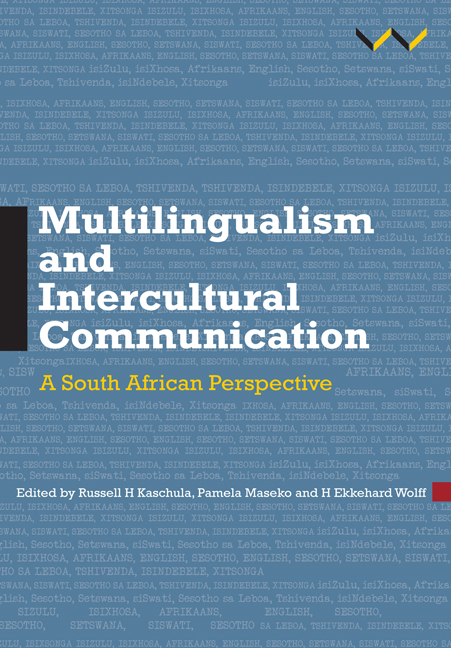Book contents
- Frontmatter
- Contents
- Tables and figures
- Preface
- Abbreviations and acronyms
- Central terms and concepts
- Introduction
- Prologue: The essentialist paradox in intellectual discourse on African languages
- Part One African language empowerment: concept formation and intellectualisation
- Part Two Language planning, terminology development and dictionaries
- Part Three Language in education
- Part Four Language in the professions: law, media, science and language technology
- Part Five Language, culture and intercultural communication
- 15 Language policy in South Africa through the Sapir-Whorf ‘looking glasses’
- 16 Language, intercultural communication and literature
- 17 Music, literature and multilingualism in the East Cape Opera Company
- 18 Beyond language: German Studies in a South African university context
- Acknowledgements
- Contributors
- Index
16 - Language, intercultural communication and literature
from Part Five - Language, culture and intercultural communication
Published online by Cambridge University Press: 23 March 2018
- Frontmatter
- Contents
- Tables and figures
- Preface
- Abbreviations and acronyms
- Central terms and concepts
- Introduction
- Prologue: The essentialist paradox in intellectual discourse on African languages
- Part One African language empowerment: concept formation and intellectualisation
- Part Two Language planning, terminology development and dictionaries
- Part Three Language in education
- Part Four Language in the professions: law, media, science and language technology
- Part Five Language, culture and intercultural communication
- 15 Language policy in South Africa through the Sapir-Whorf ‘looking glasses’
- 16 Language, intercultural communication and literature
- 17 Music, literature and multilingualism in the East Cape Opera Company
- 18 Beyond language: German Studies in a South African university context
- Acknowledgements
- Contributors
- Index
Summary
What does knowing an individual's cultural identity tell you about that individual? If you assume that that individual is like everyone else in that culture, you have stereotyped all the many various people in that culture into one mould. You know that you are different from others in your culture. Other cultures are as diverse. The diversity within cultures probably exceeds the differences between cultures. So, just knowing a person's cultural identity doesn't provide complete or reliable information about that person.
Fred E Jandt, An Introduction to Intercultural CommunicationThis chapter investigates intercultural communication in literary texts. The chapter analyses Sesotho and isiZulu novels, aiming to answer the following questions: What is it that texts encourage or discourage about personal, relational and communal identities? How do texts represent cultural identities such as age, gender, religion, social class, race, ethnicity and nationality, among other aspects? Do they represent intercultural interaction that encourages the positive interplay between cultural differences and similarities? What do they present as barriers to intercultural communication, or its facilitators?
Underpinning the chapter is the contextual approach to intercultural communication proposed by Neuliep (2012). The approach is ‘based on the idea that whenever people from different cultures come together and exchange verbal and nonverbal messages, they do so within a variety of contexts, including a cultural, micro-cultural, environmental, socio-relational and perceptual context’ (Neuliep 2012: xiii).
At this stage, it may perhaps be useful to answer the question: What is ‘intercultural communication’? Intercultural communication occurs between people of different cultures and involves a ‘minimum of two persons from different cultures’ (Neuliep 2012: 24). As a field of study, intercultural communication concentrates on intercultural relationships based on the dynamics at work in those intercultural interactions (Martin and Nakayama 2007). It is from narratives of such relationships that ‘we can learn a tremendous amount about other people and their cultures and about ourselves and our own cultural background’ (Martin and Nakayama 2007: 4).
- Type
- Chapter
- Information
- Multilingualism and Intercultural CommunicationA South African perspective, pp. 301 - 312Publisher: Wits University PressPrint publication year: 2017



